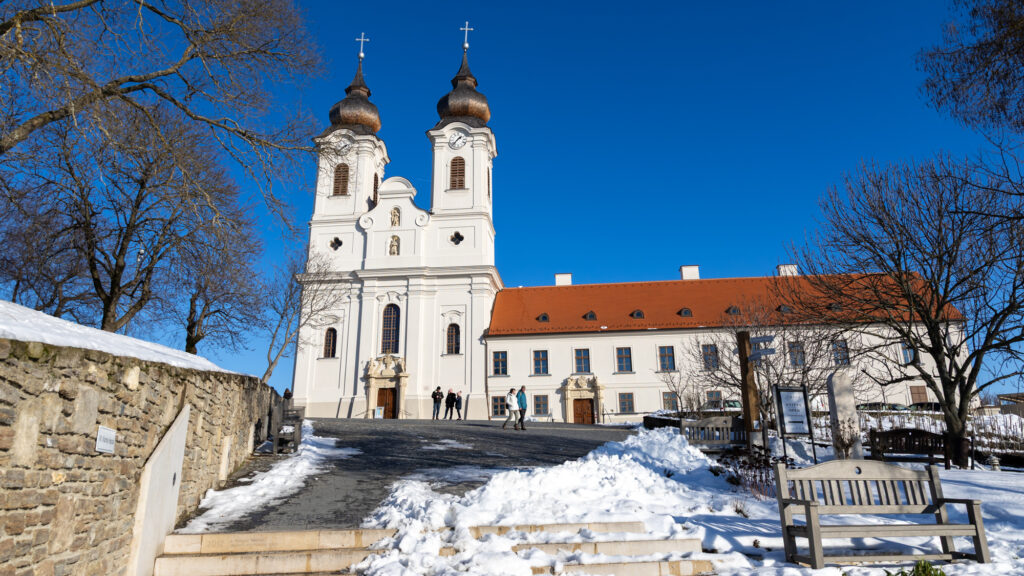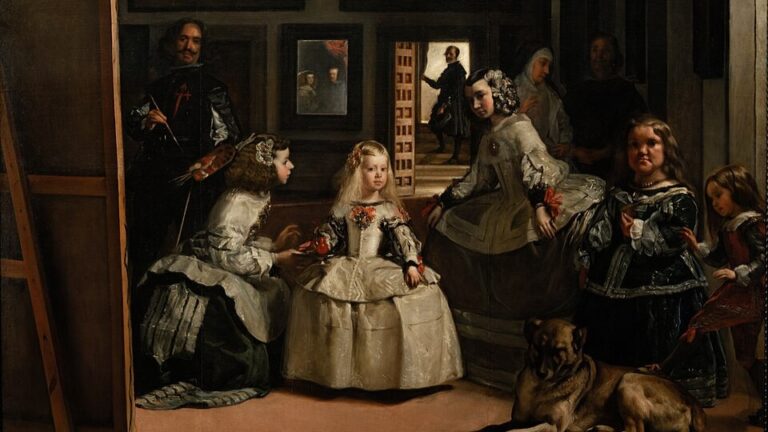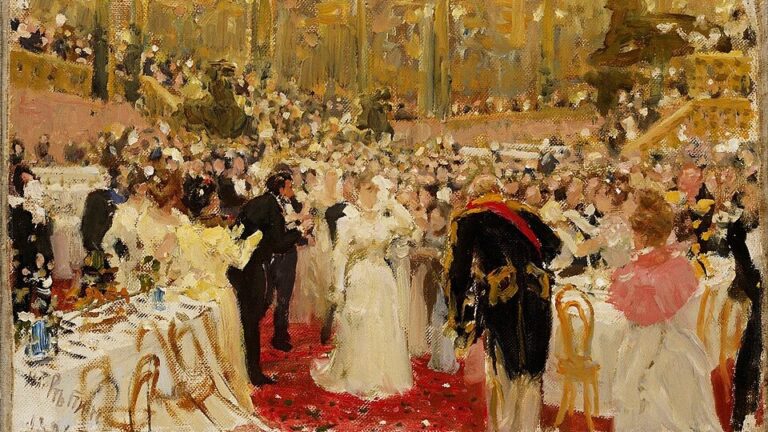See the first part of the article here.
The new right today faces a dilemma. It is increasingly unclear what its core mission is. Is it to try to maintain the global dominance of Western nations? Or is it to remedy the severe problems that have been visited on Western nations by late liberalism? In politics, as in engineering, the amount of energy available for any given operation is always limited—and if that energy is misspent on one project, it will not be available for another. The energy levels in Western countries today—looked at culturally, socially or economically—are very low. Any political actors looking to promote reforms must understand this.
But even beyond the simple question of energy and attention, there is a deeper one. Can Western nations hope to resurrect Western hegemony when they remain so dysfunctional domestically? Deeper still: are some of their domestic dysfunctions a direct result of their role in maintaining liberal empire in its late stages? Looked at in this way, the emerging multipolar world might not be a problem for the new right—or, not only a problem. It might bring with it opportunities for cultural and political revitalization in the West.
The Hegelian–Christian Roots of Marxism
The impact that Western culture has had on contemporary China is so obvious it barely needs to be pointed out: the modern Chinese state is founded on Marxist ideas that developed in Europe in the 19th century. The impact of Western ideas on the modern Chinese state is widely understood in China. As early as 1988 Wang Huning could write:
‘The inner meaning of the modern structure [of China’s political culture] is based in Western democratic culture, its ideas of natural rights, popular sovereignty, the social contract, and the separation of powers…The most recent structure [is] the political and cultural structure formed under the guidance of Marxism and socialism after 1949.’[1]
Today Wang Huning is the Chairman of the National Committee of the Chinese Peoples’ Political Consultative Conference, that is, one of the leading figures in the Communist Party of China. Wang is also recognized as one of the leading figures in China’s New Conservative intellectual movement. One might think that this would lead to problems for Western conservatives trying to find points of commonality with the current Chinese system. After all, Marxism is a radical political doctrine and is completely at odds with any sort of conservative thought. Western conservatives typically see Marxism as a highly destructive doctrine that attacks the basic commitments and institutions of Western civilization.
Yet the Chinese government appears to be in a state of ferment. Wang contends that the Chinese political culture is still in the process of forming. As Wang put it in the 1980s:
‘[Socialist China] is both “formed” and “unformed”. It is “formed” because it has been developing for decades, and it is at the same time “unformed”; it is…seeking its proper identity. The components of any political culture are constantly evolving, changing, and sublimating, and one cannot hope to form a political culture in the blink of an eye.’[2]
‘Marxism can supply the CPC with political slogans, but it cannot provide them with an august moral structure that provides Chinese people with a coherent way of living’
This explains why we are seeing a neo-Confucian revival taking place in China. The Chinese elite have begun to realize that they need an older, more venerable moral culture within which to develop their rule. Marxism can supply the CPC with political slogans, but it cannot provide them with an august moral structure that provides Chinese people with a coherent way of living. Since Confucianism was historically the broadest structure embraced by the Chinese, it is no surprise that they are once more turning to this.[3] It seems likely that, over time and left to itself, China will revert to this civilizational norm—needless to say, in a novel form. It is by no means inconceivable that Marxism will finally become a historical curiosity.
If that were to happen, however, it might be seen as a loss. This is not because Marxism offers a total system of values that can be used to govern a society—it does not—but rather because within Marxism lie some of the most basic intuitions of European Christian civilization. These ideas are often distorted in Marxism to the point of inversion, but they nevertheless exist. The embodiment of these Marxist ideas in the Chinese state may be, ironically, the closest that this ancient country has come to integrating Western, Christian ideas—albeit in a distorted form—into its culture. For this reason, there is an opportunity for China, as it shifts away from certain Marxist state doctrines, to come to better understand these civilizational elements—and to better integrate them.
To even begin to comprehend the vexed and complex relationship between Marxism and Christianity, we must glance at Marx’s vexed and complex relationship to the philosopher who inspired him: G W F Hegel. So deep is Marx’s debt to Hegel that one of his most effective lines, about religion being the ‘opium of the people’—which Marx wrote a year after the First Opium War ended—is taken from him.[4] Marx is a harsh critic and disaffected epigone—but he is one of Hegel’s epigones, nonetheless.
It has long been understood in more sophisticated Marxist circles that Marxist ideology seizes on certain elements of Hegelianism that have theological origins and secularizes them. Take the example of Georgi Plekhanov, a friend and collaborator of V I Lenin, who would later be revered as one of the most important philosophers in the Soviet Union. Even before the Bolshevik Revolution, Plekhanov could write in 1915:
‘[P]rior to its appearance in politics and in socialism, the onward movement of philosophical thought inherited by the Hegelians from their teacher revealed itself in theology.’[5]
For Plekhanov, the long arc from Hegel to Red Russia is at the same time a revolutionary arc in the history of Western thought—from dialectical idealism (Hegel) to dialectical materialism (Marx). What remains of Hegel after the idealism—or theology—has been purged away is the dialectic. It is the Left Hegelians, culminating in Marx, who see dialectic as an exhaustively materialistic—and thus, social and political—process. What Plekhanov seems not to have grasped is that the very structure of Hegel’s dialectic was theological. It is not just Hegel’s idealism that was Christian: his dialectical conception of history is Christian, too.
It is well-known that the Hegelian dialectic has a tripartite structure. The terminology is not Hegel’s, but his three dialectical moments are commonly referred to as thesis, antithesis, and synthesis. What is less well-known is that this structure incorporates Trinitarian ideas from Christianity. This is clear even in pre-Hegelian formulations of the dialectic. Here is one such formulation from the notebooks of Novalis, whose work Plekhanov mentions—only to dismiss:
‘God is…that which is essential to the thesis, antithesis, and synthesis, inseparably. God is all three…and indeed, he begins with the antithesis. Father, spirit and son. The son is pure personality. Jesus. / Spirit of synthesis—creating power, creator of nature. / …Triune God / Spinozist God / Personal God.’[6]
What Hegel’s mystical contemporary means by the obscure suggestion that the ‘Triune God’ is the source of ‘thesis, antithesis, and synthesis’ is a difficult question. What is clear, though, is this: Novalis’s Romantic formulation of the dialectic is inspired by—or perhaps even determined by—his idea of the Christian God.
Hegel himself begins to articulate dialectical notions in his early theological writings. One of his earliest formulations of the dialectic occurs in a fragment in which he is reflecting on the unfolding of passionate love. The ‘process’, he writes, is this: ‘unity, separated opposites, reunion’.[7] In Hegel’s early notebooks and in his later texts and lectures, this tripartite structure of reunion or reconciliation is seen as essential to—and as the reason for—the movement of history.
That this tripartite structure is Christian and that its elevated moment of synthesis draws on Christian ideas of love is suggested in many places in Hegel’s early writings. We read this, for instance, in The Spirit of Christianity and Its Fate:
‘Jesus sets the higher genius of reconcilability (a modification of love) which…has in itself a so much richer, more living, fulness that so poor a thing as a law is nothing for it at all.’[8]
What is the original revelation of Hegelian synthesis or sublation—Aufhebung—in history? It is the self-overcoming of human conflict and contradiction in a divine movement of love. For Hegel, as for Novalis, the highest dialectical moment seems to be connected to the figure of Jesus.
‘The core of Hegel’s hope in the dialectical movement of history seems to be that cruel and degrading conflicts…can be overcome through a drama of reconciliation, or reunion’
The core of Hegel’s hope in the dialectical movement of history seems to be that cruel and degrading conflicts—in politics, and in culture—can be overcome through a drama of reconciliation, or reunion. It is this hope that links Hegel’s philosophy of history to the Christian ‘optimism’ of Leibniz (though that term is not Leibniz’s).[9] And it is this originally Christian hope that gives rise to Marxist optimism, too. The dialectical structure itself reflects a Christian vision in which history produces, and must produce, human societies—beginning with the earliest churches—that are bound together by both freedom and love. The world-historical origin of such societies lies, for Hegel, in the original encounter with Christ as the Son of God. Once again, Plekhanov is astute. Hegelian history is a drama of progressive reconciliation:
‘According to Hegel the spirit is in a process of constant motion. The process of its motion is the process of its self-revelation. The spirit reveals itself in nature, in social life, in world history. Its self-revelation is realised in time and in space. The infinite power of the spirit is thus manifested in finite form…Finally, there is Christianity, which Hegel sees as the absolute religion, proclaiming the absolute unity and reconciliation of the infinite and the finite. In the centre of this religion is Christ as the redeemer of the world, as the son of God, and above all as God the Man.’[10]
A Rare Historical Opening for Chinese–Western Dialogue
What may be most intriguing about Hegel’s early texts is that he formulates critiques that could later be brought to bear on Marxist politics and doctrine. He does this mainly through his consideration of early voluntarist Christian communities, which are imitated—imperfectly, in Hegel’s view—by modern religious orders, such as the Jesuits. However fine it might have been that the primitive church was based on a radical form of Christian love, Hegel also notes that the first Christians’ voluntary communism or ‘community of goods’ was ‘only possible in a small sect.’ He stresses that ‘what is possible in a small society’, a ‘society of friends’, is ‘unjust in a state’.[11] Already in 1795, Hegel opposed every transposition of so-called primitive communism to the state level—even in a revolutionary state that is notionally destined to wither away.
Hegel further notes that extreme ‘equality was a principle with the early Christians’. Yet he recognized that this too is impractical in more advanced forms of social organization. All in all, Hegel finds it unrealistic that Marxist principles (avant la lettre) of common ownership and extreme equality could endure in advanced forms of social organization. He states this explicitly with respect to the idea of communal property rights:
‘[I]f the possessor [of any thing] gives the other the same right of possession as he has himself, community of goods is still only the right of one or other of the two to the thing…’[12]
What this unfinished thought suggests is that a full decade before The Phenomenology of Spirit appeared, in 1807, Hegel had determined that collective ownership could not, as such, overcome human alienation or social contradiction—whatever else might be said in its favour. Shared possession still creates subjective alienation and objective conditions for conflict.
Perhaps most radically, young Hegel assigns the abolition of property to a negative moment of the dialectic. The fundamental gesture of communist politics seems not belong to what Hegel calls ‘reunion’, but rather to an unresolved stage of ‘separated opposites’.[13] He writes this:
‘[C]ommunity in a negation gives no pleasure, affords no beauty. Abolition of property…belong[s] to the negative side of union instead of constituting a positive union.’[14]
Communism requires a ‘beyond’, and this beyond cannot be realized on the level of objective relations. What Hegel calls ‘positive union’ can only be achieved subjectively, even in a small voluntaristic society, by love.
A young Hegel therefore determines in more than one way that the ideal offered by early Christian communities is not a social form that could or should be replicated in states. If Hegel had lived to see The Communist Manifesto of 1848 (he died in 1831), he might have chastized Marx and Engels for having misunderstood the lesson that these voluntarist communities still offer us. The greatest lesson these communities offer had to do, not with ‘the negative side of union’, but instead with the sublime constitution of a ‘positive union’.[15] For the ideal of Christian love embodied in the earliest churches can be replicated in a highly developed society:
‘Over against the negative side of the [earliest] Christian communion…there stands the positive side, the bond of love.’[16]
Fittingly, it is a distinguished French Sinologist, François Jullien, who reminds us that Hegel’s valorization of love, spirit and reason is indebted to the first verses of the Gospel According to John. ‘From this,’ Jullien comments on John chapter 1, ‘comes all of Hegel.’[17] Hegel’s Geist is best understood as a figure of the sublime Word that we find in John: the force that, through the figure of Christ, descends upon the earth to move mankind toward the perfection of love.
‘The social ideal of primitive communism will simply not work for more developed forms of social organization’
This brings us back to the contemporary Chinese state. As we have already discussed, many Christian ideas are already embedded in the contemporary Chinese state, albeit in heavily modified form. Marxism does not seek to achieve glory by embracing the value system that Christianity teaches, but rather by reordering society along communist lines. The Chinese government realized long ago – at least as far back as the reforms of Deng Xiaoping—that this is not a practical goal. They have realized what Hegel already noted in his early writings: the social ideal of primitive communism will simply not work for more developed forms of social organization. Yet at the same time, the Chinese state has a dialectical structure built into it. This can be seen any time the CPC makes a statement about how their policies are seeking to improve, not just the Chinese people but humanity as a whole. Here we see the Christian ideal, taken over from Hegel by Marx.
This is where Western conservatives should open a dialogue with Chinese conservatives. Chinese conservatives are gradually moving the country back to its Confucian roots. If—or when—they succeed, the Marxist legacy will be greatly diminished or even buried. But what if there is an enormous opportunity for a true dialogue before that happens? We currently seem to be faced with a world-historical ‘moment’ in which the Chinese state has embraced modes of thought that are inherently Christian and Western in origin. But they are not recognized as such. In both China and the West, intellectuals view these ideas as simply Marxist—forgetting their Christian, Romantic and Hegelian origins. Now that there is a measure of agreement in both China and the West that Marxist communism is probably not an achievable social goal, it is time to open a discussion on what aspects of this legacy might be saved. China is looking for a new moral synthesis of its Confucian and Western political culture that could stabilize Chinese society and take its ‘positive union’ to new heights. This could be one of the most constructive dialogues between China and the West. But as the influence of Marxism in China wanes, the moment for this dialogue could pass at any time. Let us not miss this exciting opportunity.
[1] Wang Huning, ‘The Structure of China’s Changing Political Culture’, 1988, section 2. (Our stresses.) Translated by David Ownby and archived online at https://www.readingthechinadream.com/wang-huning-ldquothe-structure-of-chinarsquos-changing-political-culturerdquo.html, accessed 15 June 2025.
[2] Ibid.
[3] Jesús Solé-Farràs, ‘Harmony in Contemporary New Confucianism and in Socialism with Chinese Characteristics’, China Media Research 4, no. 4 (2008), 14–24; and Jesús Solé-Farràs, New Confucianism in Twenty-First Century China: The Construction of a Discourse, London, Routledge, 2013.
[4] Esther Oluffa Pedersen, ‘Religion is the Opium of the People: An Investigation into the Intellectual Context of Marx’s Critique of Religion’, History of Political Thought 36, no. 2 (2015): 354–87, p. 360.
[5] Georgi Plekhanov, ‘From Idealism to Materialism’, Selected Philosophical Works, Volume 3, Moscow, Progress Publishers, 1976, section 7. (Plekhanov’s stresses.) Archived online at https://www.marxists.org/archive/plekhanov/1917/idealism-materialism/index.htm, accessed 15 June 2025.
[6] Novalis, Fichte Studies, Jane Kneller (ed), Cambridge, Cambridge Universit Press, 2003, p. 57.
[7] G W F.Hegel, Early Theological Writings, T M Knox (trans), Richard Kroner (intro), Philadelphia, University of Pennsylvania Press, 1975, p. 308.
[8] Ibid, p. 215. (Our stress.)
[9] Ibid, pp. 35–36, p. 42.
[10] Plekhanov, ‘From Idealism to Materialism’, Selected Philosophical Works, section 6. (Plekhanov’s stresses.)
[11] Hegel, Early Theological Writings, pp. 86–87, p. 102.
[12] Ibid, p. 308.
[13] Ibid.
[14] Ibid, p. 287.
[15] Ibid.
[16] Ibid, p. 289. (Our stresses.)
[17] François Jullien, Resources of Christianity, Pedro Rodriguez (trans), Cambridge, Polity Press, 2021, p. 59.
Related articles:






